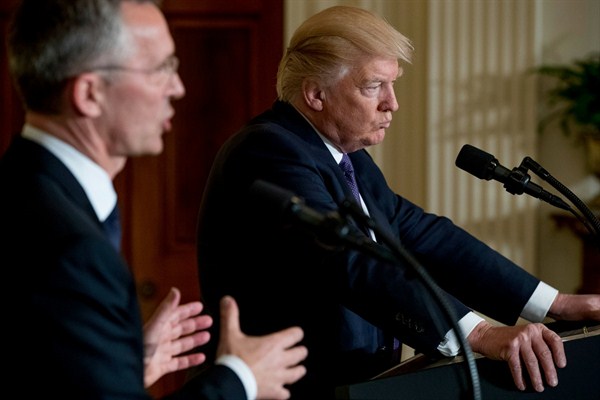In the information age, we can all access more information than we can absorb, so the choices we make about what sources to trust may make us dumber, not smarter. U.S. President Donald Trump is a prime example of a very casual approach to accessing information, more often from social media rather than subject-matter experts, whose influence on public policy is declining. As a result, leaders are more likely to make poor choices in responding to the international challenges they face.
Watching Trump abruptly change his positions as he is exposed to more authoritative information about world problems is illustrative of a larger issue. Trump exemplifies the 21st-century consumer who grabs information nonchalantly from social media or other intermediaries, without pausing to consider the bona fides of the source of information. Since entering the White House, he’s been willing and able to change his views, often by 180 degrees, when provided with more convincing information that has been vetted and evaluated. His early judgment that NATO was obsolete, for example, was replaced last week by his pronouncement that it no longer was, presumably based on his exchanges days before with the visiting NATO secretary-general, Jens Stoltenberg.
Trump can change his views on NATO or China’s currency manipulation or even Russian behavior because his positions were probably not deeply held convictions, but rather politically expedient elements of his anti-establishment public profile. By contrast, other citizens hold onto such positions as truths that are validated and reinforced by the information sources they trust. And the explosion of information outlets of varying degrees of reliability that compete with professional journalism, think tanks and academic scholarship has altered the way information is used for public debates and public policy.

